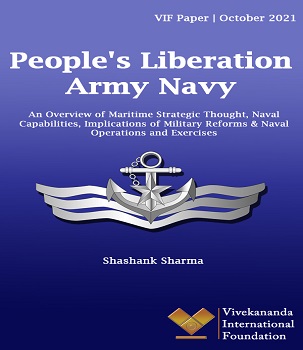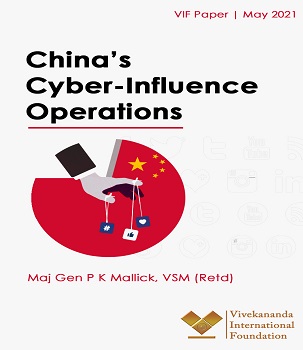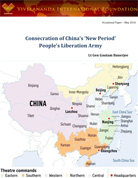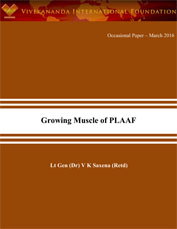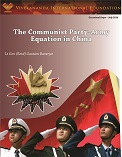This paper aims to provide an overview of the Chinese maritime strategic thought and naval capabilities that could have a bearing on India’s strategic and security environment, particularly in the Indian Ocean. It provides a broad picture of major reforms in PLA during the Xi Jinping era that commenced in 2014 and the drivers and objectives behind these reforms.
… With its growing assertiveness in the international arena, China uses new technologies to achieve its foreign policy goals and project an image of responsible global power … spending billions on influence operations across the world ... fits in with China’s larger aim of expanding its soft power alongside its growing economic and military power … reach of Beijing’s overseas media is impressive and should not be underestimated. But the results are mixed ...
A Home Run of Military Modernisation At the dawn of Year 2016, the People’s Republic of China (PRC) officially promulgated the commencement of the final phase of restructuring of its apex setup for management of national defence as well as its highest organisation for the exercise of military command and control over its 2.3 million strong People’s Liberation Army (PLA). Click here to read full paper
Steady Growth. Although some signs of a somewhat waning economy are now visible in China (economic growth rate sliding down from 10.5% in 2010 to 7.4% in 2014) she has experienced a steady growth cycle for the past two decades, catapulting the country as the world’s second largest economy. Click here to read full Paper
Preamble In republican scheme of matters, warfare is the ultimate political recourse that is to be prosecuted to seek conditions for advantageous settlement of external disputes. Conversely, in communist theology, military force is but an integral component of external as well as domestic political articulation, more of the latter in fact, for it to remain committed as the guarantor of the regime’s autarkic endeavours. Click here to read full Paper

